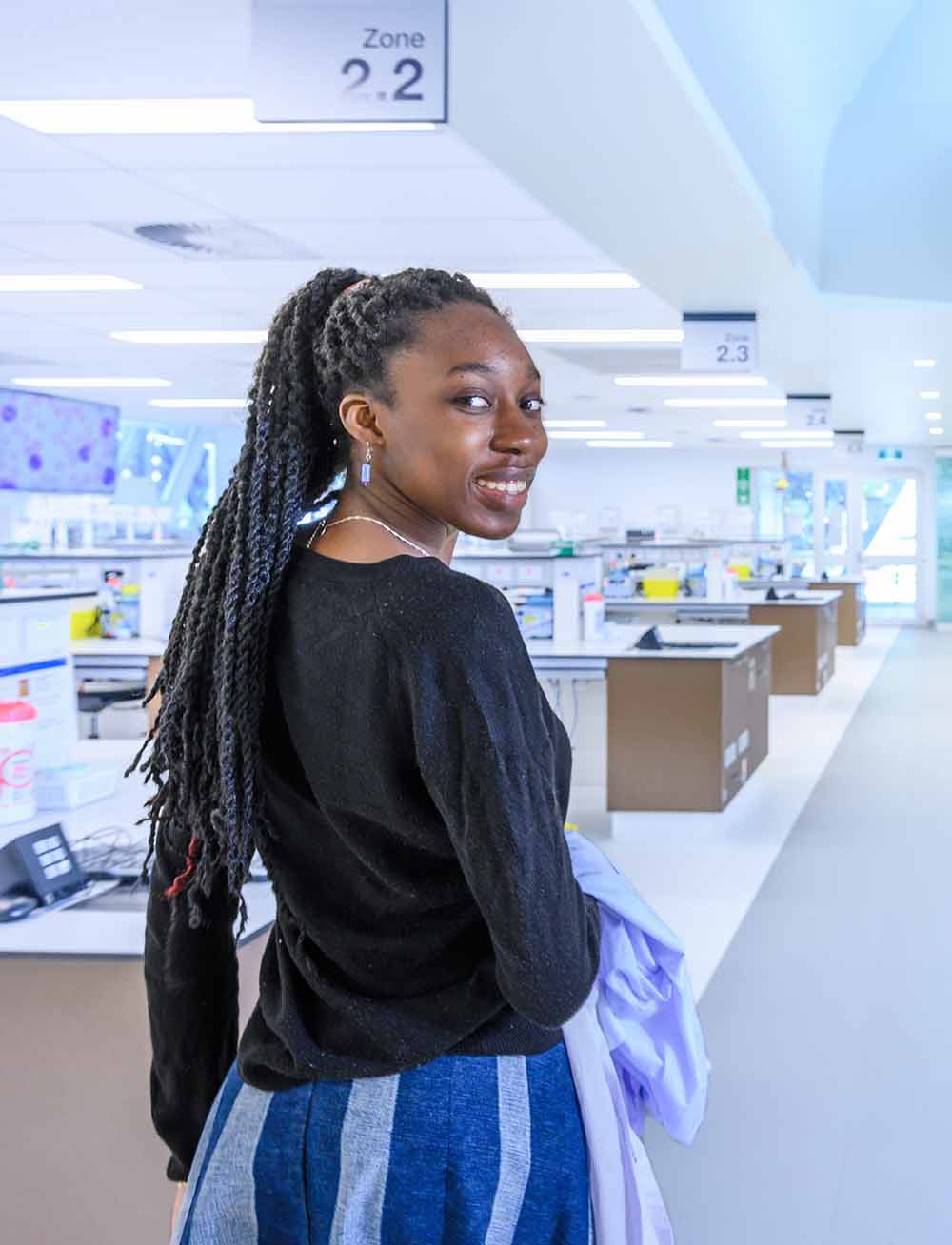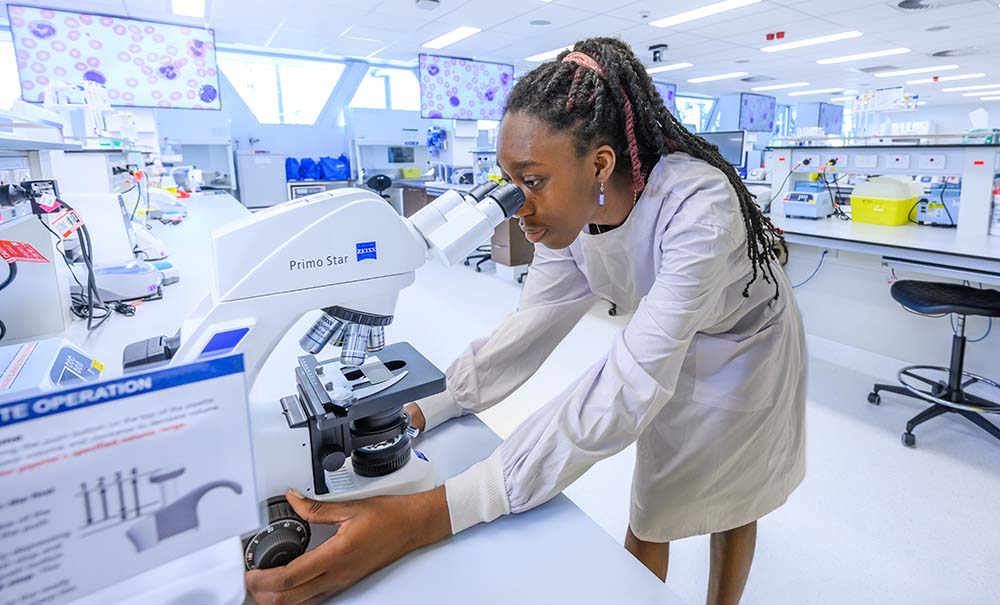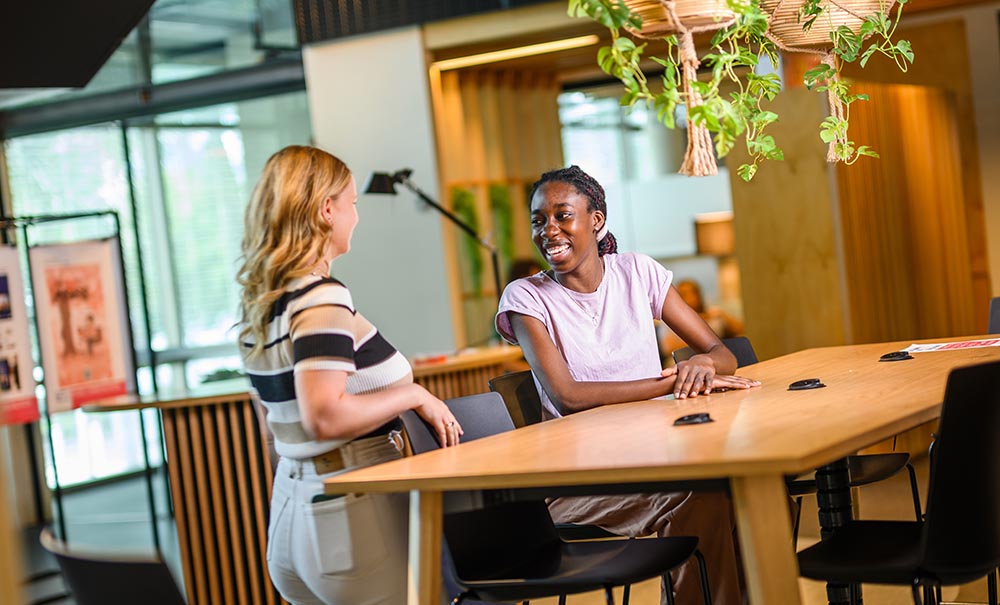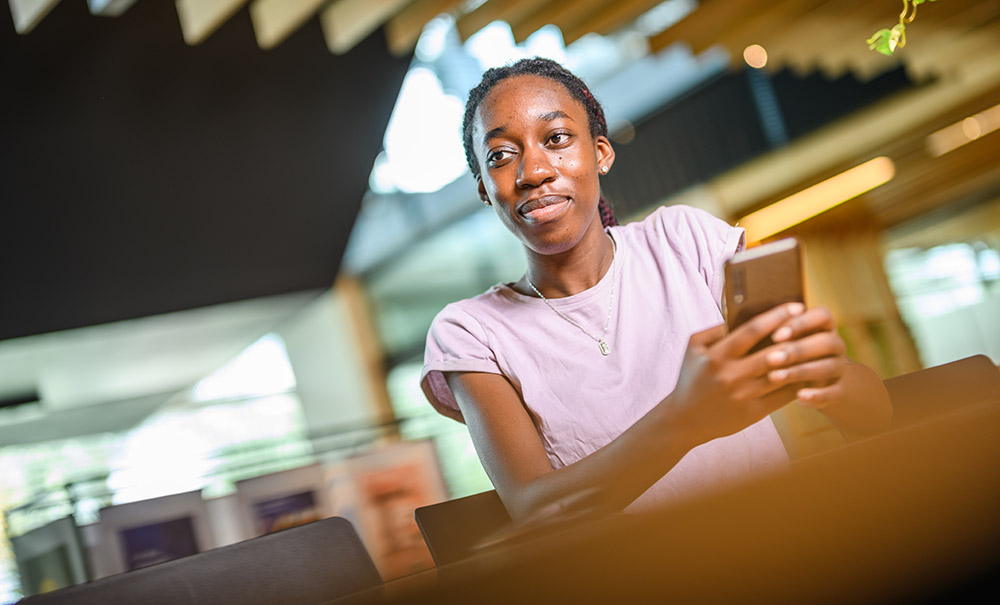
Abena Botwewood, 22 February, 2023
Current student Abena Botwewood shares her experiences.
What is medical laboratory science?
Medical laboratory scientists take human or animal specimens, and we test them to diagnose a disease or a mutation, or even find toxins or poisons in the sample. I chose this course because I wanted to learn more about the science behind health and disease prevention.
I’m interested in exploring things that people wouldn't usually be able to see clinically from human to human. I want to dig deeper to uncover medical mysteries. There's a lot of things in medicine that haven't been discovered yet—or that need more evidence or research. Contributing to that research and discovery is what I most want to do.
What do you do in class?
Some of the best moments I have had at QUT have been learning about infectious diseases and immunity. Being able to connect the theory to the practical classes helped me to develop a deeper understanding of diseases and how the body works to defend against them.


In the laboratory we’ve worked with real samples, because a lot of the things that we do in the lab you can't replicate, or fake it, with a synthetic sample. We are using industry-standard equipment and real samples to perform tests and assays.
One of my favourite experiences was where we took our own samples, like saliva samples, and looked for genetic mutations or differences in our genetics from, like, our friends or even close family members.
I found out that a lot of my genes that are dominant come from my father's side, rather than my mother's side. My mum carries a lot of recessive genes.
What other experiences have you had while studying medical laboratory science?
In medical laboratory science we experience work integrated learning from the first semester in the first year. Being able to be immersed in such experiences have helped me value the importance of science from medical perspective.

As well as lectures and practical classes we also have tutorials. The great thing about tutorials is that they are smaller, which gives me an opportunity to ask more questions and dive deeper into particular topics that I am interested in.
At QUT there is a lot of opportunities to build industry connections. By attending events hosted by the QUT Medlab society I have been able to make industry connections as well as participating in volunteering with QUT connect has been helping me develop my communication skills on a professional level.

What career are you hoping for when you graduate medical laboratory science?
I grew up knowing I wanted to be a scientist, it was a matter of what type of science I went into. When I complete my degree, I would like to go on to do further research into genetic mutations or even diseases in the oral and nasal cavities.
